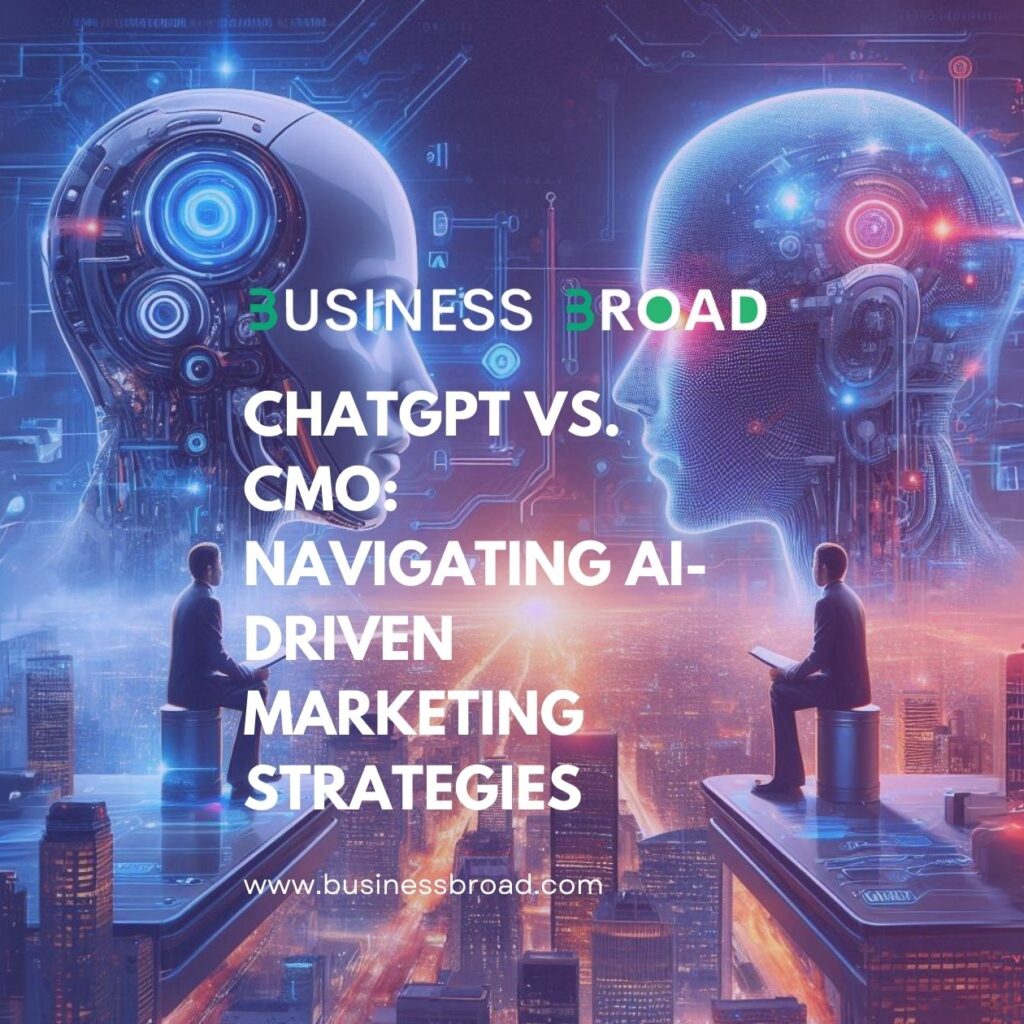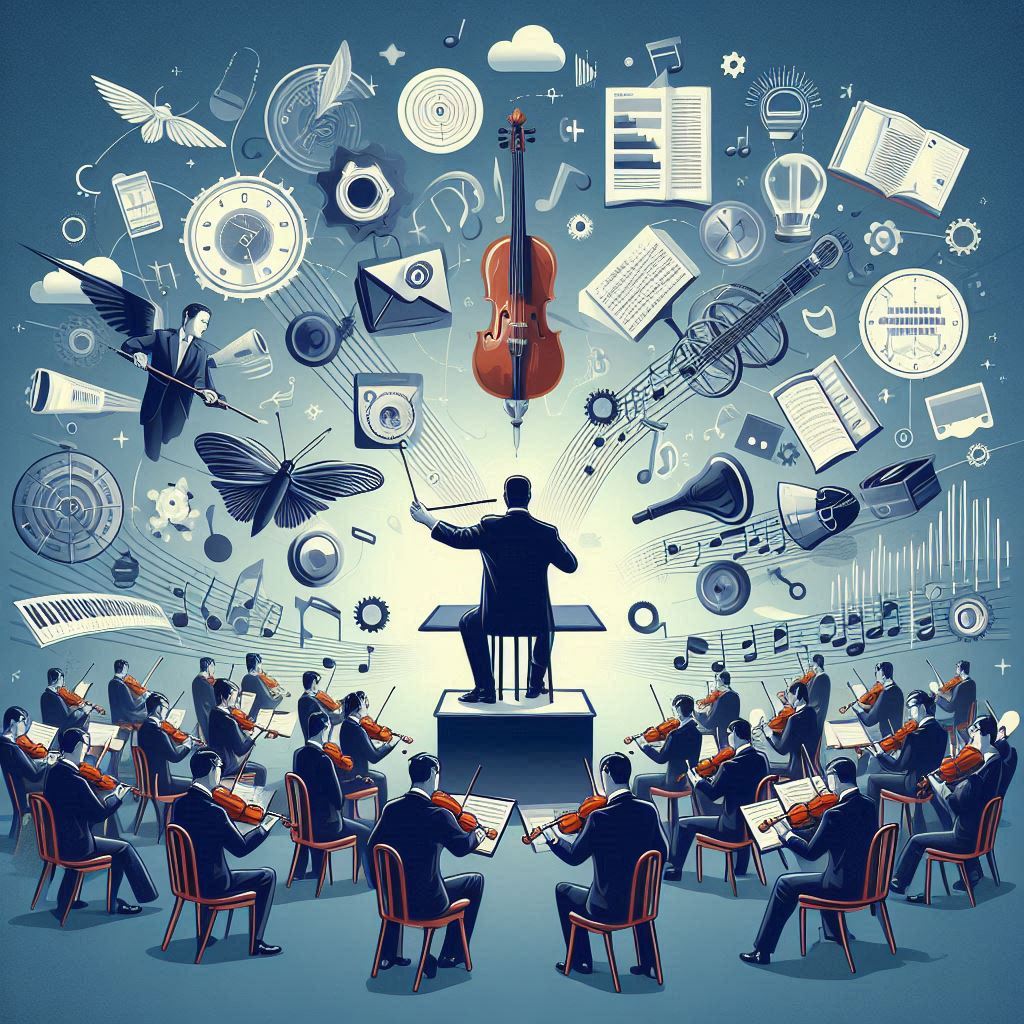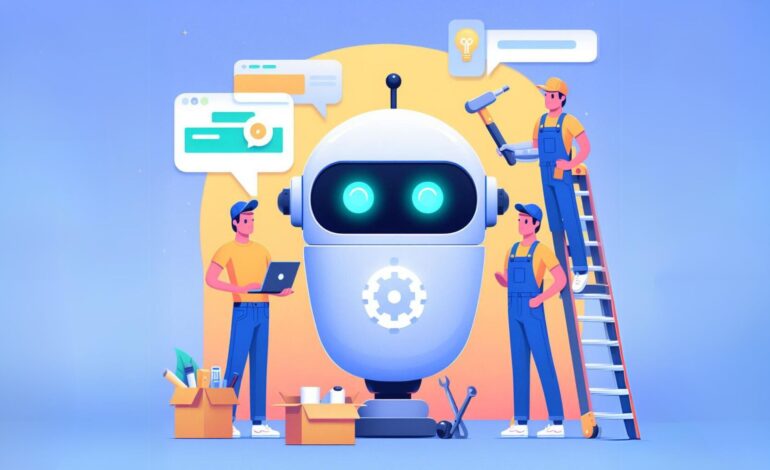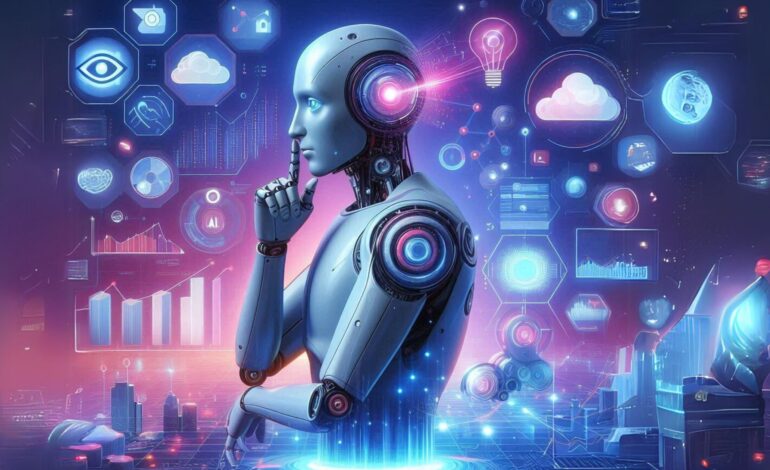In the ever-evolving world of marketing, where data-driven decisions and customer-centric strategies reign supreme, two powerful forces collide: the cutting-edge AI language model, ChatGPT, and the seasoned marketing expert—the Chief Marketing Officer (CMO).
ChatGPT, developed by OpenAI, has disrupted the way we communicate, automate tasks, and generate content. Its ability to understand context, provide personalized responses, and analyze vast amounts of information has marketers buzzing with excitement. Meanwhile, the CMO, often the visionary behind a brand’s success, orchestrates campaigns, shapes brand identity, and navigates the complex marketing landscape.
In this blog, we’ll explore how ChatGPT and the CMO complement each other, where they diverge, and how they can collaborate to drive marketing excellence. Buckle up as we delve into the fascinating intersection of artificial intelligence and human expertise!

ChatGPT VS. Chief Marketing Officer (CMO)
- Personalized Customer Interactions:
- ChatGPT enables CMOs to deliver personalized customer experiences. By understanding and responding to customer concerns, queries, and preferences, it creates human-like interactions, improves customer satisfaction, and fosters brand loyalty. CMOs can utilize ChatGPT to give customized proposals, resolve client issues rapidly, and redo item ideas.
- Market Research and Competitive Analysis:
- ChatGPT analyzes the market landscape and competitors, helping CMOs make strategic decisions. It uses vast data to identify customer preferences, track industry trends, and discover new marketing opportunities. By acquiring bits of knowledge and leading serious examination, CMOs can foster designated lobbies for various brands.
- Content Creation and Optimization:
- High-quality and engaging content is crucial for marketing strategies. CMOs can use ChatGPT to find creative ideas, draft marketing copies, and craft compelling headlines. It also assists in understanding the target audience, providing insights into customer preferences, and optimizing content. Furthermore, ChatGPT investigates market patterns, client criticism, and opinion examination to refine content methodologies.
- Lead Generation:
- ChatGPT supports lead generation through chatbots. By interacting with potential customers, it asks relevant questions to gather details, provides personalized recommendations, and qualifies leads based on predefined data. This lead qualifying process supports advertising effort viability and change rates.
ChatGPT: The AI Wordsmith

1. Content Creation and Personalization
ChatGPT is more than just a chatbot; it’s a versatile content creator. Here’s how it can revolutionize your marketing efforts:
- Automated Content Generation: ChatGPT can churn out blog posts, social media updates, and product descriptions at lightning speed. It’s like having a tireless copywriter on your team, ready to produce engaging content whenever you need it.
- Personalized Messaging: Imagine tailoring messages to individual customers based on their preferences, browsing history, and interactions. ChatGPT can analyze data and craft personalized responses, making your communication more relevant and effective.
2. Market Insights and Trend Analysis
- Sentiment Analysis: ChatGPT can scan social media, reviews, and news articles to gauge public sentiment. It helps CMOs understand how their brand is perceived and identify potential PR crises.
- Predictive Analytics: By analyzing historical data, ChatGPT can predict market trends, customer behavior, and emerging opportunities. CMOs armed with these insights can make informed decisions.
3. Chatbots and Customer Service
- 24/7 Support: ChatGPT-powered chatbots provide round-the-clock customer support. They answer FAQs, troubleshoot issues, and guide users through the sales funnel. CMOs appreciate the cost-effectiveness and efficiency of this solution.
- Lead Qualification: ChatGPT can engage with website visitors, qualify leads, and route them to the right department. It streamlines lead management and frees up human resources for more complex tasks.
The CMO: Orchestrating Marketing Symphony

1. Strategic Vision and Brand Building
- Brand Strategy: The CMO defines the brand’s voice, values, and positioning. They create cohesive messaging across channels, ensuring consistency and resonance with the target audience.
- Campaign Design: From product launches to seasonal promotions, the CMO conceptualizes and executes marketing campaigns. Their creativity drives engagement and boosts brand awareness.
2. Data-Driven Decision-Making
- ROI Analysis: CMOs evaluate marketing campaigns’ return on investment. They use data to allocate budgets wisely, optimize channels, and maximize revenue.
- Customer Segmentation: By understanding different customer segments, CMOs tailor marketing efforts. They know that a one-size-fits-all approach rarely works.
3. Relationship Building and Networking
- Partnerships: CMOs collaborate with influencers, industry leaders, and other brands. These partnerships amplify reach and enhance credibility.
- Customer Experience: CMOs focus on creating memorable experiences. Whether it’s a seamless website journey or exceptional customer service, they ensure positive interactions.
Collaboration: The Perfect Harmony
Imagine ChatGPT and the CMO working together:
- Content Ideation: ChatGPT generates ideas, and the CMO refines them into compelling narratives.
- Data Fusion: ChatGPT analyzes data, and the CMO interprets it strategically.
- Customer Engagement: ChatGPT handles routine queries, freeing the CMO to build deeper relationships.
In this AI-human partnership, creativity meets efficiency, and marketing evolves. So, whether you’re a CMO exploring AI possibilities or a ChatGPT enthusiast curious about marketing, remember: the future belongs to those who harmonize the best of both worlds!





3 Comments
[…] ChatGPT VS. CMO: Navigating AI-Driven Marketing Strategies […]
[…] ChatGPT VS. CMO: Navigating AI-Driven Marketing Strategies […]
[…] ChatGPT VS. CMO: Navigating AI-Driven Marketing Strategies […]